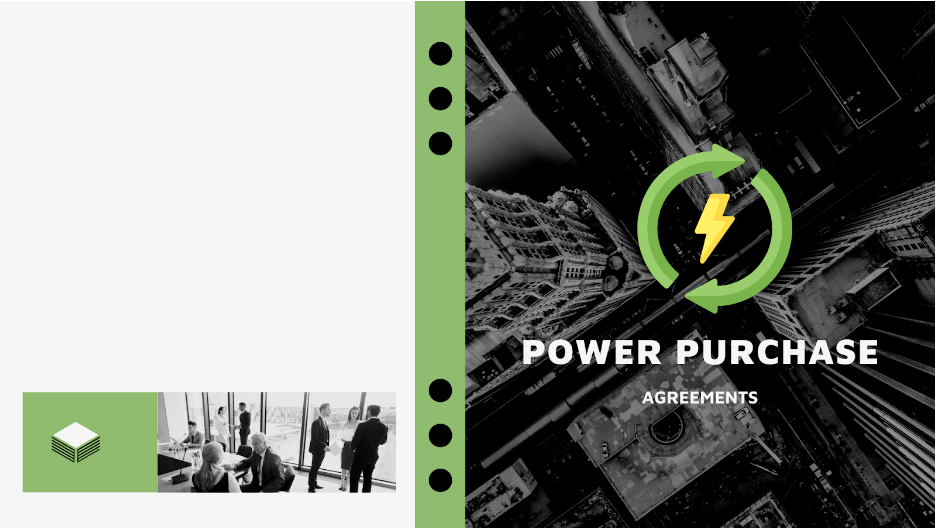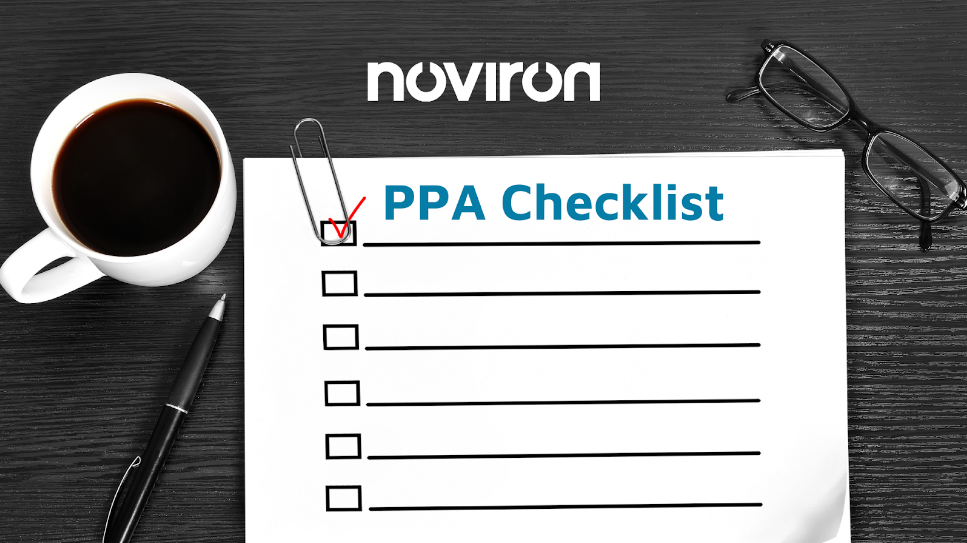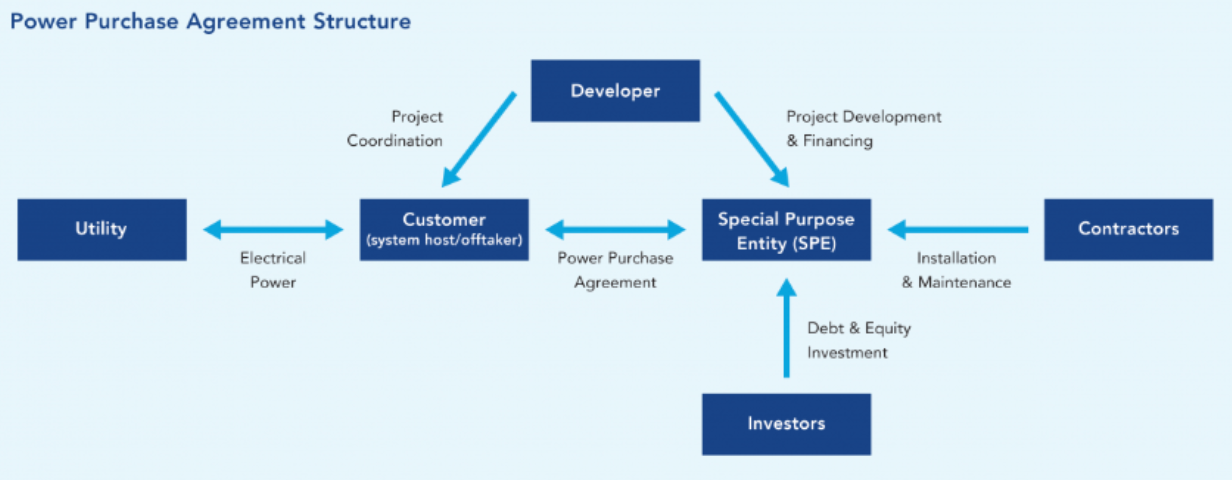What is Power Purchase Agreement?
Power Purchase Agreements (PPAs) are contracts between electricity generators and buyers, such as utilities, businesses, and government entities. They allow electricity customers to purchase electricity from an independent generator at an agreed-upon rate. This agreement is commonly used in the renewable energy industry to facilitate the sale of electricity generated from solar, wind, and other renewable sources.
What is the purpose of the Power Purchase Agreement?
The primary purpose of a Power Purchase Agreement (PPA) is to establish a long-term agreement to sell electricity generated by a power generator to a power purchaser. It helps provide a predictable electricity source for the power purchaser and a stable revenue stream for the power generator.
PPAs also help to facilitate the development of new power generation projects, particularly in the renewable energy sector, by providing a means for project developers to secure financing for the project. This is done by providing a long-term revenue stream that can be used as collateral for debt financing.
Additionally, PPAs can help promote the use of clean, renewable energy by providing a means for power purchasers to meet their sustainability goals and reduce their carbon footprint.
Types of PPA
There are several types of Power Purchase Agreements (PPAs) in the energy industry, including:
- Full Requirements PPA: This type of PPA is used by utilities or energy companies to purchase all the electricity a power plant generates.
- Baseload PPA: A baseload PPA purchases electricity generated by a power plant that is expected to operate at a steady, constant level, typically used to meet the minimum energy demand.
- Peaking PPA: A peaking PPA is used to purchase electricity generated by a power plant that is expected to operate only during periods of high energy demand, also called peak hours.
- Virtual PPA: A virtual PPA is a financial contract between an energy company or utility and a renewable energy project developer in which the buyer agrees to purchase the energy generated from the project over a certain period of time.
- Corporate PPA: A corporate PPA is a contract between a company and a renewable energy project developer in which the company agrees to purchase the energy generated from the project over a certain period of time to help meet its own energy

How does a PPA Work?
The agreement’s conditions are accepted by both the buyer and the seller. These could include the cost, the duration of the contract, the volume produced or sold annually, the fuel consumed, the terms of termination, and penalties.
The buyer is obligated to purchase the energy at a set or agreed-upon price. Due to the large numbers bought in bulk, the buying price is typically less than retail rates.
It is the seller’s responsibility to produce and deliver the predetermined quantity. Sellers might include solar panels on a house, windmills in a remote area, or green energy credits to balance off the power that would otherwise be produced from fossil fuels.
The PPA can best be viewed as an energy fence. It fixes an electrical purchase and sale price at a fixed rate with predetermined fixed costs. This enables both parties to understand their agreements before entering into new terms or agreements.
After formulating the PPA’s conditions, a request will be sent to the state public utility commission (PUC). Following assessment, the PUC decides whether to accept or reject the application. Accepting the application makes reaching an agreement easier for the buyer and seller.
What is a PPA checklist and points to keep in mind while doing a PPA?

Corporate Structure includes the description of the leading corporate Structure, i.e., how are principal risks allocated between Seller and Buyer? I.e.
- Baseload,
- annual Baseload
- monthly Pay-as-produced without volume cap
- Pay-as-produced with volume cap
- Fixed Price for Fixed volume
- Option structure (e.g., floor, collar)
Risk Handling:– It deals with the main risks allocated between Seller and Buyer. I.e.
- Price Risk
- Liquidity Risk
- Volume Risk
- Profile Risk
- Balancing etc
Time Period:– What is the actual duration of the fixed price element? I.e.
- Fixed date
- Commercial operation date (COD) with grace and delay period
Price Fixing: As you move forward with the agreement, you need to agree upon the price offerings, and that too further divided as:
- What are the conditions and precedents for price fixing?
- Is there a reference price defined?
- Is closing in installment/ tranche feasible?
Finance: Who will fund the project?
- Who is the direct party?
- Who is the guarantor?
Contract: The type of contract these two parties are bound in
- Long Term [For decades]
- European Federation of Energy Traders [EFET]
- International Swaps and Derivatives Association [ISDA]
Termination: The factors which can lead and trigger a contract or agreement to terminate:
- Non-payment of invoices for a fixed period
- Non-availability beyond certain thresholds
- Non-performance of guaranteed volumes for specific periods
- Delay of COD beyond a certain date
- Misrepresentations
- Non-agreement on adjustment of contract after the legal change
- Others

Conclusion: Power Purchase Agreements are more popular
Power Purchase Agreements (PPAs) are popular because they allow companies and organizations to purchase electricity from renewable energy sources, such as wind and solar, at a fixed rate over a long-term contract. This will enable them to lock in energy costs and reduce their exposure to price volatility in the traditional electricity market. Further, PPAs can help companies and organizations meet their sustainability goals and reduce their carbon footprint. They also enable the growth of renewable energy projects by providing a guaranteed revenue stream for developers. Additionally, PPAs can be structured to provide financing for developing new renewable energy projects, which can help drive investment in the sector and support the growth of renewable energy sources.
Are you interested in learning how to structure and negotiate Corporate Power Purchase Agreements (PPAs)? Join us for the free webinar: Introduction to Corporate Power Purchase Agreements.
